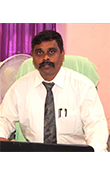What is the purpose of Education?
What is the purpose of Education?
 Ms. Shalini Nambiar, is a progressive visionary with a liberal outlook, who does not stay shackled with the pedagogy of stereotype and conventional expectations and schemes of things that bind an educator. Very much with the times, she believes that education should be, essentially, child centered and aimed at nurturing the child and not imposing facts, figures and theories in the name of education. She Is currently the Vice President of GEMS Education.
Ms. Shalini Nambiar, is a progressive visionary with a liberal outlook, who does not stay shackled with the pedagogy of stereotype and conventional expectations and schemes of things that bind an educator. Very much with the times, she believes that education should be, essentially, child centered and aimed at nurturing the child and not imposing facts, figures and theories in the name of education. She Is currently the Vice President of GEMS Education.
In this article, Ms. Shalini throws light on what education is actually supposed to be and what it has become.
A distraught child walked into my room with her aunt, looked devastated, eyes were full of sadness and anguish and exclaimed ,’I am a failure, and every child in my class teases me so I just don’t want to study anymore ‘.
I asked her, ‘Why do you think you are a failure?’ ‘I am, as I have failed in Math and Science, I am dumb and have no interest in living now ‘.
I asked her ‘What do you like to do?‘, She said with excitement in her eyes, ‘Paint and sing’.
Come April and so many children think like this that they are a failure as schools decide to detain them and not promote and quite rudely ask them to take their TC and move to different schools.
Is this what education is? Can one imagine the state of mind of a child who has studied for almost 9 years in a school and is suddenly termed a ‘failure’ because she did not clear her Math or Science or any other subject? Children go through depression and become a cause of ridicule and then emerge thoughts of committing suicide as they have no desire to live any longer. They are fed up of the pressure exerted by the school, teachers, and parents and want to find an easy way out.
Debate about the purposes of education never seems to end. Should young people become educated to get prepared to enter the workforce, or should the purpose of education be focused more on social, academic, cultural and intellectual development so that students can grow up to be engaged citizens? In numerous conferences which I attend this is one of the most basic question which is dealt with and focus is on 21st century teaching methodologies, etc. etc.
BUT are we doing the same? A simple question that if I go to a doctor as I am suffering from a diseases. Is it ethical on part of the Doctor to refuse treating me if I am going to die.
It is the same question I ask the so called educationists that why are children told to leave schools if they fail in 09th and 10th or 11th? Are they not responsible for the child or do they want to wear that crown of High achievers in Academics on their head and flaunt it in numerous advertisements that we give 100% Board results.
Is it the correct way of judging a school’s success. In my eyes it is disgusting and inhumane that a student who has been part of the school system for so long is suddenly told to leave school just because he or she failed in a particular exam.
Human beings throughout the world are being educated to conform, to fit into society and into their culture, to fit into the stream of social and economic activity, to be sucked into that vast stream that has been flowing for thousands of years. Is that education, or is education something entirely different?
Can education see to it that the human mind is not drawn into that vast stream and so destroyed; see that the mind is never sucked into that stream; so that, with such a mind, you can be an entirely different human being with a different quality to life? Real education means that a human mind, your mind, not only is capable of being excellent in mathematics, geography and history, but also can never, under any circumstances, be drawn into the stream of society.
In fact, the world is full of people who have achieved so much success in life despite not doing academically well in school then why judge a child on the basis of academics alone?
It seems nobody is bothered of the child …what will he go through? his feelings, his emotions, we are actually killing him before he can flower and lowering his self-esteem.
There’s a wonderful letter written by a Principal of a Singapore school which he mailed to all the parents before the exams and is shared on every possible social media site. But that’s it, a big full stop after that.
Are we not supposed to be responsible for each child who comes under our care? Are we not supposed to ensure that we help the child discover his or her innate talent? Are we not supposed to ensure that we do not judge a child on the basis of marks? Yes we all will agree then why?
A growing problem not only in India but all over the globe is that students are more stressed than ever. In fact, India has one of the highest rate of suicides among people aged between 15 and 29. Although the reasons are myriad but failure in examination, unemployment, and depression are some the reasons why people put their life at risk.
A common cause of concern is the pressure from parents to do well in the class XII board exams and even before that. There have been many incidents in the past where students have committed suicide during exams and on the result day. But what can be so extreme that students decide to end their life?
Psychologists suggest that students suffer from anxiety and traumatic disorder relating to fear of examination. The fear factor is the reason why students suffer from anxiety, depression, and the following consequences. And the fear not only comes from the school but also from parents, who go to extreme levels to push their children into getting better grades.
The best time of the life that students are supposed to enjoy and cherish is the time they are pushed to extreme levels which can be overwhelming for many.
Let’s look at the main problems in our culture:
Indian Education System: Time and time again many complaints have been made against the Indian education system which is more inclined towards memorization and takes long systematic study hours. Leaving less time for recreational activities, and socialization which is an essential part of the development of a child.
The performance of a student’s 12th grade determines the choice of college or university he/she will get admission in. Students from science stream go into further stress by giving entrance exams for different universities and colleges. And the competition is fierce.
Pressure from parents and school: Fear of failure to do well in studies is causing anxiety among students which has substantial negative effects on their academic and social success. The self-worth of a student is determined by the academic success and grades, and not on the basis of individual qualities they already do possess. Parents try to get rid of cable connection, internet, computer, only so that their children could concentrate and get better grades.
In a recent survey, two-third (66%) students reported that their parents pressurize them for better academic performance and the pressure from non-graduate parents was more compared to parents those were graduates and post graduates.
Every day, 6.23 students commit suicide due to the peer pressure, there must be something wrong that we are not understanding.
The emphasis is so much so on the better grades that students forget the fun element in learning. Anything can be made interesting if taught well. So, it’s not only the students who underperform, teachers underperform too. Sadly, there are no criteria to judge the grades of a teacher. More than 50% 12th students admitted of having more than 3 private tutors.
So what is the solution? Basic Academic knowledge is essential and there is no denial of that but can’t we help the children to discover their innate passion and work on it . There needs to be efforts put in wherein we recognize this and help to nurture the same so that the children grow up as confident individuals ready to follow their heart and dreams.





















